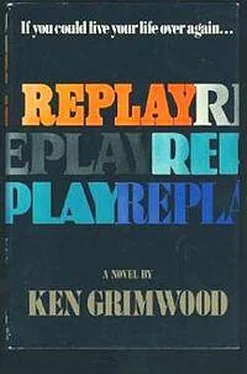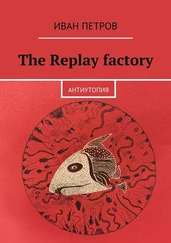Again he had sought solace in his work. His most recent coup had been the sale, at enormous profit, of his oil fields in Venezuela and Abu Dhabi, and their immediate replacement with similar properties in Alaska and Texas, plus the contracts for a dozen offshore drilling rigs. All deals completed, of course, just before the OPEC sword had fallen.
The women whose company he sought had all been similar, in most respects, to Diane: attractive, well-groomed companions, versed in all the most rarefied of social skills, accomplished, and, on occasion, enthusiastic in bed. Daughters of fortune, a sisterhood of what passed for the American beau monde. Women who knew the ground rules, had understood from birth the boundaries of and obligations attendant upon the holders of great wealth. They were his peers now; they constituted the pool from which he should in all rationality select a mate. His choice of Diane among them had been almost random. She fit the appropriate criteria. If something greater were eventually to grow of their pairing, well and good … and if not, then at least he had not come to the marriage with unrealistically high expectations.
Jeff cleansed his palate with a bit of cheese and sampled a semisweet Fleuri Blanc. Diane abstained this time, patted her swollen belly by way of explanation.
Maybe the child would make a difference, after all. You never knew.
The plump orange cat skittered across the hardwood floor in a headlong broken-field run good enough to match the best performance of O. J. Simpson. His prey, a shiny yellow satin ribbon, had suffered crippling damage and would soon be shredded if the cat had his way with it.
"Gretchen!" Jeff called. "Did you know Chumley’s tearing up one of your yellow ribbons?"
"It’s O.K., Daddy," his daughter answered from the far corner of the large sitting room, near the window overlooking the Hudson. "Ken’s home now, and Chumley and I are helping to celebrate."
"When did he get home? Isn’t he still in the hospital in Germany?"
"Oh, no, Daddy; he told the doctors he wasn’t sick and he had to get home right away. So Barbie sent him a ticket for the Concorde, and he got home before anybody else, and as soon as he walked in the door she cooked him six blueberry muffins and four hot dogs."
Jeff laughed aloud, and Gretchen shot him the most withering look her wide-eyed five-year-old’s face could muster. "They don’t have hot dogs in Iran," she explained. "Or blueberry muffins, either."
"I guess not," Jeff said, keeping his expression carefully somber. "I suppose he’d be hungry for American food by now, huh?"
"'Course he would. Barbie knows how to make him happy."
The cat darted back in the other direction, batting the tattered ribbon between his paws, then settled on his side in a patch of sunlight to gloat over his conquest, kicking at it in sporadic bursts with his hind legs. Gretchen went back to her own games, absorbed in the alternate reality of the elaborate dollhouse that Jeff had spent more than a year building and expanding to her specifications. The miniature trees in its green felt front yard were now festooned with bright yellow ribbons, and for the past week she’d been following news reports of the end of the hostage crisis with a depth of interest most children invested only in the Saturday-morning cartoon shows. At first Jeff had been concerned about her fascination with the events in Tehran, had wanted to protect her from the potentially traumatizing effects of watching all those rabid mobs chanting "Death to the U.S"; but he’d known the episode would have a peaceful, upbeat conclusion, so he chose to respect his daughter’s precocious grasp of the world and to trust in her emotional resilience.
He loved her to a degree he had not thought possible, found himself simultaneously wanting to shield her from all darkness and share with her all light. Gretchen’s arrival had done nothing to cement his marriage to Diane, who, if anything, seemed to resent the constraints on her life that the child represented. But no matter, Gretchen herself was source and object of all the deep affection he could encompass or imagine.
Jeff watched as she took another ribbon from one of the doll-house trees, taunted fat old Chumley with it. The cat was tired, didn’t want to play anymore; it put a soft paw entreatingly on Gretchen’s cheek, and she buried her face in its furry golden belly, nuzzling the animal to full contentment. Jeff could hear its purr from across the room, mingled with his daughter’s gentle laughter.
The sun slanted higher through the tall bay windows, fell in brilliant striated beams upon the polished floor where Gretchen snuggled with the cat. This house, this tranquil, wooded place in Dutchess County, was good for her; its serenity was balm for any human soul, young or old, innocent or troubled.
Jeff thought of his old roommate, Martin Bailey. He’d called Martin soon after Gretchen was born, reestablished the contact that had somehow, in this life, been broken for so many years. Jeff hadn’t been able to talk him out of what would prove to be a particularly disastrous marriage, one that had originally led the man to suicide; but he’d made sure Martin had a secure position with Future, Inc., and some excellent stock tips now and then. His friend was divorced again, miserably so, but at least he was alive, and solvent.
Jeff seldom thought of Linda these days, or of his old existence. It was that first life that seemed a dream now; reality was the emotional stalemate with Diane, the blissfulness of being with his daughter, Gretchen, and the mixed blessings of his ever-growing wealth and power. Reality was knowledge and all that it had brought him—good and ill.
The image on the screen was one of pure organic motion: liquid rippling smoothly through curved chambers, expansion and contraction alternating in a perfect, lazy rhythm.
"… no apparent blockage of either ventricle, as you can see. And, of course, the Holler EKG showed no evidence of tachycardia during the twenty-four hours that you wore it."
"So what exactly does all that boil down to?" Jeff asked.
The cardiologist turned off the video-cassette machine that had been displaying the ultrasonic depiction of Jeff’s heart, and smiled.
"What it means is that your heart is in as close to perfect condition as any forty-three-year-old American male could hope it to be. So are your lungs, according to the X rays and the pulmonary-function tests."
"Then my life expectancy—"
"Keep yourself in this kind of shape, and you’ll probably make it to a hundred. Still going to the gym, I take it?"
"Three times a week." Jeff had profited from his anticipation of the late-seventies fitness craze in more ways than one. He not only owned Adidas and Nautilus and the Holiday Health Spa chain; he’d made full use of all their equipment for over a decade.
"Well, don’t stop," the doctor said. "I only wish all my patients took such good care of themselves."
Jeff made small talk for a few more minutes, but his mind was elsewhere: It was on himself at exactly this age, in this same year, yet more than twenty years ago. Himself as a sedentary, over-stressed, and slightly overweight executive, clutching his chest and pitching face-forward on his desk as the world went blank.
Not this time. This time he’d be fine.
Jeff preferred the comfort of the back room at La Grenouille, but Diane considered even lunch an occasion at which seeing and being seen was of prime importance. So they always ate in the front room, crowded and noisy though it invariably was.
Jeff savored his poached salmon with tarragon, basil, and mild-vinegar sauce, doing his best to ignore both Diane’s present sulk and the conversations from the tables pressed tightly on either side of them. One couple was discussing marriage, the other divorce. Jeff and Diane’s luncheon talk was somewhere in the middle.
Читать дальше












